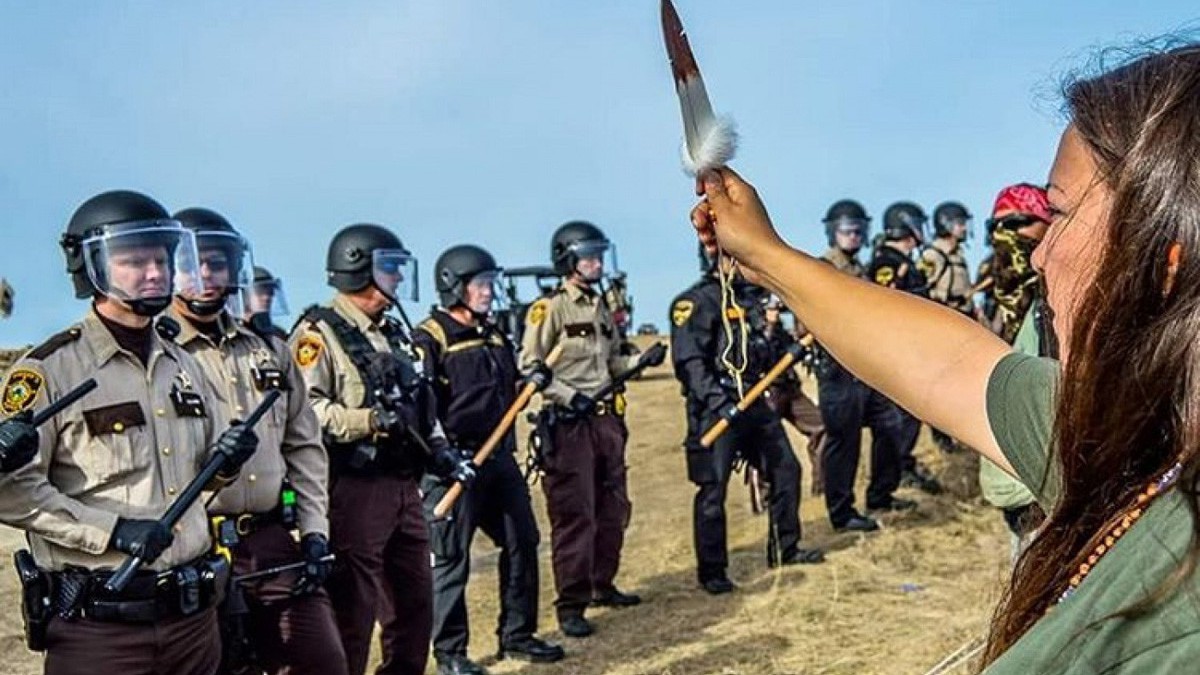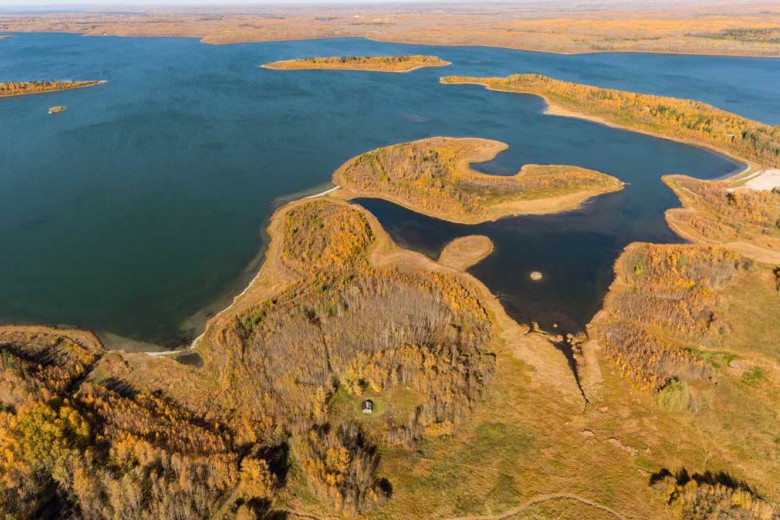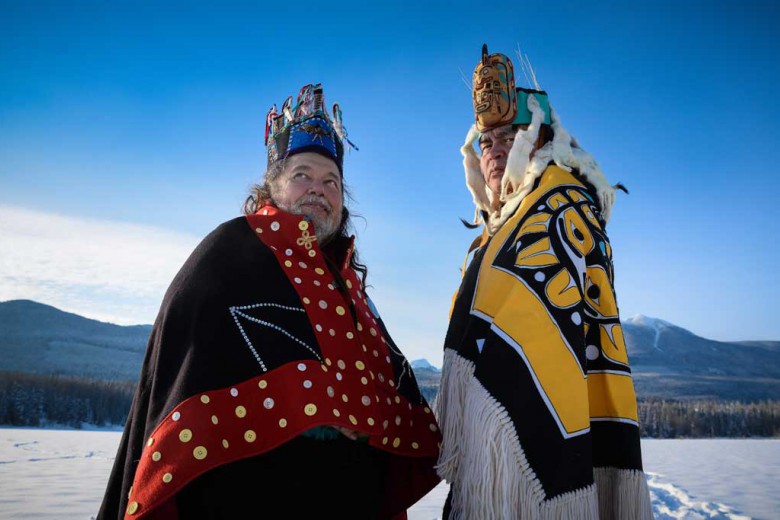On June 13th, Saskatchewan’s NDP leader of the opposition Ryan Meili made a Facebook post that distinguished his party from the governing Saskatchewan Party:
“Yesterday Buckley Belanger and I met with Prescott Demas and others at the justice camp outside the legislature. NDP members have met with the group many times, it’s always been respectful and informative.
Why won’t the SK Party ministers do the same?”
On June 19, six core participants of the Justice For Our Stolen Children camp were arrested, handcuffed, and detained by police. Since then, support has flooded in, with tribal councils and First Nations erecting a dozen more tipis on the site.
More recently, this week, Meili went on John Gormley’s popular right-wing radio show to defend the camp.
But, a day after Meili’s June social media post in support of the camp, the Saskatchewan NDP announced their new Chief of Staff – the first major hire since Meili’s campaign victory in the March party leadership race. Meili’s choice for what is arguably the most powerful unelected position in the party was Olin Valby, a Texas-based oil industry manager working for TransCanada Corp, and a former staffer in the NDP Calvert administration.
Meili’s choice for what is arguably the most powerful unelected position in the party was Olin Valby, a Texas-based oil industry manager.
Mr. Valby has been a friend of Meili’s for 20 years, and donated $5,000 to his campaign. Meili told media that Valby has a strong reputation for “working on big projects and working to get results.” According to Valby’s LinkedIn page, this includes oil and gas projects that have ranged from $100K to $1B.
Following the announcement, many progressives close to the Meili campaign rallied to Valby’s support on social media – with calls to “look beyond the headlines and build relationships.”
“Valby has been trusted by the oil industry to shepherd over 75 pipeline and facility projects through stakeholder engagement and scoping,” says Emily Eaton, a researcher on Saskatchewan’s oil economy. She’s hesitant to embrace the congratulatory tide. Eaton predicts that Valby will leverage this experience as chief of staff in one of two ways: “Either he will adopt the Alberta NDP’s form of ‘new climate denialism’, where decision-makers employ pro-climate science rhetoric while continuing to deny what climate science actually means for policy. Or he will use his insider knowledge of the oil industry to undermine its power and influence in this province.”
Eaton warns that if he follows the first path, “the NDP will continue its historic support of the oil industry while attempting to manage the people and movements who oppose the unfettered growth of the industry.” She says, “as we have seen in Alberta, this would mean supporting oil development on Indigenous lands with little respect for the rights of Indigenous peoples to free, prior, and informed consent.”
She continues, “If he follows the second path, we can finally start moving towards the sustainable economies we all need. Our future generations need him to do the latter,” adding that “but doing so would betray the industry that has employed him for the last decade.”
“Our future generations need him to do the latter. But doing so would betray the industry that has employed him for the last decade.”
When asked what the public should make of the hire, Meili responded vaguely, saying he “wouldn’t make too much of it in any direction.”
But policy direction is highly impacted by the economic interests in the room. Longtime Briarpatch diehards know that the magazine’s principled opposition to resource extraction in the North played a significant role in the Blakeney NDP government cutting all funding to the publication overnight in 1979. At the time, the Blakeney government argued that Briarpatch had strayed too far from its mandate as an anti-poverty resource.
Meili’s brush-off sounds familiar to Indigenous people who have a long and uninterrupted history of being told to “hang tight,” “don’t worry,” and “wait and see how this plays out.” This “wait and see” colonial rhetoric, delivered via settler politics for 151 years, has proven devastating for Indigenous people and their stolen children, women and girls, lands, and waters.
This “wait and see” colonial rhetoric has proven devastating for Indigenous people and their stolen children, women and girls, lands, and waters.
There is a calculus for even well-intentioned settler politicians who aspire to power in Saskatchewan and beyond: don’t step up to bat for decolonization in practice, because the voters won’t support it. There is an infrastructure, both inside and outside of political parties, that sweeps “progressive” politicians to the centre, away from accountability to Indigenous peoples and their lands – and away from ecological sanity and social justice. Such politicians would not attain political power in this system otherwise. Are we seeing this in real time with the current Saskatchewan NDP?
Talk of “reconciliation” is too often divorced from the practical recognition of Indigenous people’s rights to the land. This is the ugly underbelly of the “reconciliation” industry. To his credit, Meili has demonstrated public support for the Justice For Our Stolen Children camp since June 13th – but the next day he appointed an oil manager from TransCanada Corp as his chief of staff. The question is: how does one so easily separate stolen children from stolen land, with a chief of staff whose career has been built on colonial resource extraction?
The political calculus of settler politicians has seldom served Indigenous people or these lands well. The inability to see the link between devastation of the land and the devastation of Indigenous lives has proven a consistent blind spot in settler politics — Saskatchewan’s NDP is no exception.







